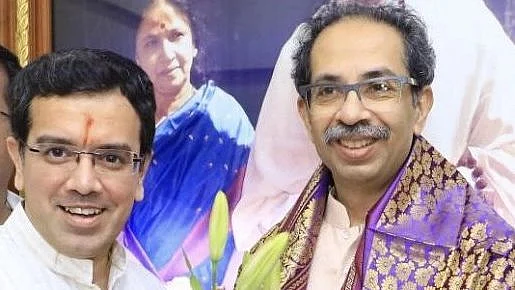The message that the university is a venue for a free exchange of ideas but cannot be utilised for actions that are "anti-national" or against the "interest of the nation's sovereignty," according to VK Saraswat, chancellor of Jawaharlal Nehru University (JNU), has been comprehended by the students.
Saraswat, who is also a member of NITI Aayog, further said that in the Jawaharlal Nehru University (JNU), people have enough freedom to exercise their thinking processes and they are very vigilant about what is happening in India and globally. "It is a free-thinking society there. So, you will find a lot of contradictory thought processes, and a lot of contradictory ideologies, which people will nurture. So at times, there was a clash of ideologies, that is why you used to hear that there are problems," he told PTI.
In recent years, JNU has witnessed several instances of violence involving Left-affiliated student outfits and RSS' student body Akhil Bhartiya Vidyarthi Parishad (ABVP). In April this year, two groups of students clashed at the varsity’s Kaveri Hostel allegedly over the serving of non-vegetarian food on Ram Navami in the mess. "But we have now given total shape to this that you (students) have the freedom to express yourself, except that any activity which is anti-national, any activity which is against the interest of the nation's sovereignty, such things should be dissuaded. "And that message has been delivered to all concerned. I think, by and large, people have understood," Saraswat said. He noted that the COVID-19 pandemic also helped to a large extent because people started working from home and then they realised that the ecosystem of JNU is required for them to be more creative and productive rather than sitting at home. "And, hence you see some positive outcomes," Saraswat added.
Sharjeel Imam, Umar Khalid, Natasha Narwal, and Devangana Kalita were among the JNU students and graduates who were detained for allegedly conspiring to start the 2020 Delhi riots under the strict Unlawful Activities (Prevention) Act (UAPA). While Umar Khalid and Sharjeel Imam remain in custody, Natasha Narwal and Devangana Kalita were eventually released on bail.
In 2016 during a campus demonstration, Kanhaiya Kumar and Khalid, who were then JNU students, were detained by the Delhi Police for their alleged involvement in the sedition case. Later, they were freed on bond. Now a member of the Congress, Kumar. On January 5, 2020, a group of masked men assaulted the campus and went after the students in three hostels. They caused havoc by beating the residents, smashing windows, furniture, and personal items, and wreaking havoc with sticks, stones, and iron rods. Aishe Ghosh, president of the JNU Students' Union, was among the at least 28 individuals hurt during the nearly two hours of utter turmoil on campus.
(To receive our E-paper on whatsapp daily, please click here. To receive it on Telegram, please click here. We permit sharing of the paper's PDF on WhatsApp and other social media platforms.)






